CLER Distinguished Scholar in Residence 2019
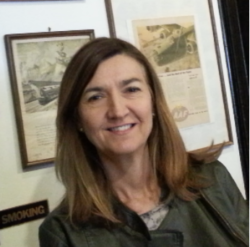
The Centre for Language Education Research in the School of Education, University of Leeds is delighted to announce its first Distinguished Scholar in Residence:
Professor Lourdes Ortega, Georgetown University, USA
Lourdes Ortega is a professor at Georgetown University, where she mentors language educators and linguistics doctoral students. She investigates how adults learn new languages, particularly in higher education settings. She is best known for an award-winning meta-analysis of second language instruction published in 2000, a best-seller graduate-level textbook Understanding Second Language Acquisition (Routledge 2009, translated into Mandarin in 2016), and since 2010 for championing a bilingual and social justice turn in her field of second language acquisition. Her latest book is The Cambridge Handbook of Bilingualism (co-edited with child bilingualism researcher Annick De Houwer). Lourdes was born, raised, and college-educated in southern Spain, spent a year abroad at the University of Munich in the early 1980s, worked as a teacher of Spanish for almost a decade in Greece, and obtained her doctorate in the United States, the country where she has lived for over 25 years now. These choices have afforded her a different dominant language at different periods in her life (so far): Spanish, German, Modern Greek, and English. This trajectory has shaped her professional identities as an educator and a researcher. She is committed to investigating what it means to become bilingual or multilingual later in life and across elite and marginalized contexts for language learning. In her work she seeks to encourage connections between research and teaching and to support harmonious bilingualism and the well-being of all multilinguals.
Distinguished Scholar in Residence Lecture by Lourdes Ortega
The humanistic values that traditionally justified world language education are in crisis, the dominance of English seems unstoppable, and according to the United Nations (2017) 3.4 percent of the world’s population (approximately 258 million people) live in a country other than their original one, many of them leading multilingual lives by force as much as by choice. It is clear that these global developments greatly affect the lives of language learners. But how do they affect the lives of language teachers? And how should research into doing language education respond? In this talk, l explore ethical minefields that arise when an orientation towards social justice is embraced while investigating language education. I will reflect on resonances and differences in doing language education across diverse contexts. My goal is to open up innovative research lenses that might improve researchers’ ability to illuminate language education at different nested levels – societies and institutions, schools and classrooms, communities and families, minds and brains – while never losing sight of today’s material, ideological, and geopolitical inequities.
Professor Lourdes Ortega Keynote Speech Part 1
Professor Lourdes Ortega Keynote Speech Part 2
Professor Lourdes Ortega Keynote Speech Part 3
Professor Lourdes Ortega Keynote Speech Part 4
Keynote Discussions
Discussants: Prof Cecile de Cat (Language, Cultures and Societies, Leeds), Prof Ruth Swanwick (Education, Leeds) and Dr Julia Snell (English, Leeds)
CLER Chairs: Richard Badger and Mohammad Ahmadian
Professor Cécile de Cat (Language, Cultures and Societies, Leeds)
Professor Ruth Swanwick (School of Education, Leeds)
Dr Julia Snell (English, Leeds)
‘A Day in the Life of…’
Short data-based multi-modal contributions on who learns, teaches and uses language(s) and to what ends.
Speakers include: Alice Deignan (CLER); Jody Bradford (Language Centre); James Simpson (CLER); Diane Nelson & Janet Watson (Centre for Endangered Languages, Cultures and Ecosystems); Lucy Taylor (CLER); Elisabetta Adami (Languages, Cultures and Society); Louise Dearden (CLER); Postgraduate Taught Students (CLER)
Discussants:
Martin Lamb (CLER), Judith Hanks (CLER) & Lourdes Ortega (Georgetown University)
CLER Chairs: Huahui Zhao & Gary Chambers
Professor Alice Deignan (CLER)
Jody Bradford (Language Centre)
Dr Elisabetta Adami (Languages, Cultures and Society)
MA TESOL Studies Students
CLER Conversation: Researching Language Education
Dr Anamaria Pinter: Researching inclusively
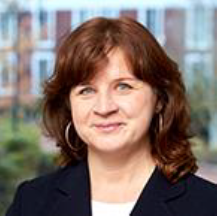 Annamaria Pinter is Associate Professor in the Centre for Applied Linguistics at the University of Warwick. Her research interests include a wide range of topics across language education research, including second/ foreign language acquisition and learning for children of all ages and language teacher development and professional growth. She is interested in language learning processes in both formal and informal contexts, task-based learning and developing language learning materials for children. Annamaria has researched across diverse international contexts and is particularly interested in inclusive, participatory research with children which includes working with children as active co-researchers. She has authored numerous publications, including Children Learning Second Languages (2011, Palgrave) and Teaching Young Language Learners (2017, Oxford University Press).
Annamaria Pinter is Associate Professor in the Centre for Applied Linguistics at the University of Warwick. Her research interests include a wide range of topics across language education research, including second/ foreign language acquisition and learning for children of all ages and language teacher development and professional growth. She is interested in language learning processes in both formal and informal contexts, task-based learning and developing language learning materials for children. Annamaria has researched across diverse international contexts and is particularly interested in inclusive, participatory research with children which includes working with children as active co-researchers. She has authored numerous publications, including Children Learning Second Languages (2011, Palgrave) and Teaching Young Language Learners (2017, Oxford University Press).
Dr Jane Andrews: Researching multilingually
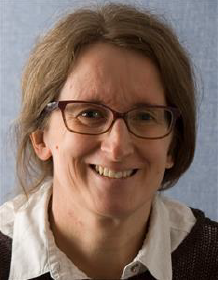 Jane Andrews is Associate Professor in Education at the University of the West of England (UWE), Bristol. She teaches and researches in a range of areas within the field of education and has a particular interest in multilingualism and learning. Her current research interests include children's perspectives on being multilingual and researching multilingually. More details on the two Arts and Humanities Research Council projects on the processes and possibilities of researching multilingually can be found at http://researchingmultilingually.com/. Jane's current research is also funded by the AHRC and is entitled "Creating Welcoming Learning Environments: Disseminating arts-based approaches to including all learners in their education
Jane Andrews is Associate Professor in Education at the University of the West of England (UWE), Bristol. She teaches and researches in a range of areas within the field of education and has a particular interest in multilingualism and learning. Her current research interests include children's perspectives on being multilingual and researching multilingually. More details on the two Arts and Humanities Research Council projects on the processes and possibilities of researching multilingually can be found at http://researchingmultilingually.com/. Jane's current research is also funded by the AHRC and is entitled "Creating Welcoming Learning Environments: Disseminating arts-based approaches to including all learners in their education
Dr Jessica Bradley: Researching multimodally
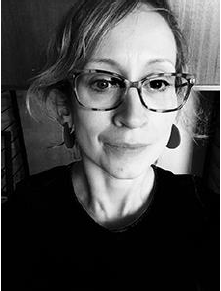 Jessica Bradley is Lecturer in Literacies in the School of Education at the University of Sheffield. Her ethnographic research concerns questions at the intersection of applied linguistics and creative practice in formal and non-formal education. Her AHRC-funded doctoral research was carried out in the School of Education at the University of Leeds, as part of the TLANG project: ‘Translation and Translanguaging: Investigating Linguistic and Cultural Transformations in Superdiverse Wards in Four UK Cities’. Although applied linguistics-based, her current research is interdisciplinary and includes interest in folklore, story-telling and performance. Her AHRC-funded ‘Migration and Home: Welcome in Utopia’ project used multimodal and arts-informed approaches to understandings of ‘welcome’.
Jessica Bradley is Lecturer in Literacies in the School of Education at the University of Sheffield. Her ethnographic research concerns questions at the intersection of applied linguistics and creative practice in formal and non-formal education. Her AHRC-funded doctoral research was carried out in the School of Education at the University of Leeds, as part of the TLANG project: ‘Translation and Translanguaging: Investigating Linguistic and Cultural Transformations in Superdiverse Wards in Four UK Cities’. Although applied linguistics-based, her current research is interdisciplinary and includes interest in folklore, story-telling and performance. Her AHRC-funded ‘Migration and Home: Welcome in Utopia’ project used multimodal and arts-informed approaches to understandings of ‘welcome’.
CLER Capacity Building Series
Publishing Language Education Research
 Professor Lourdes Ortega, Georgetown University, USA was Journal Editor of Language Learning (2010-2015) and is a member of the Board of Directors of the University of Michigan’s Language Learning Research Club (2016-2020). She also served as area editor for “Language Learning and Teaching” for the Wiley Encyclopedia of Applied Linguistics (2013). In this hands-on workshop Lourdes will use her extensive publishing and editorial experience to offer tips and advice on publishing language education research. The session will start with an introduction to publishing, followed by an informal discussion of participants’ publication projects and aspirations over lunch. Lourdes will lead a discussion of specific questions, projects and ideas and offer practical tips on disseminating ethically-sound language education research. The workshop is open to all researchers at doctoral and post-doctoral level. Early Career Researchers are particularly welcome to attend. Attendees are asked to submit a brief summary (up to 100 words) of their research and/or planned publication at registration.
Professor Lourdes Ortega, Georgetown University, USA was Journal Editor of Language Learning (2010-2015) and is a member of the Board of Directors of the University of Michigan’s Language Learning Research Club (2016-2020). She also served as area editor for “Language Learning and Teaching” for the Wiley Encyclopedia of Applied Linguistics (2013). In this hands-on workshop Lourdes will use her extensive publishing and editorial experience to offer tips and advice on publishing language education research. The session will start with an introduction to publishing, followed by an informal discussion of participants’ publication projects and aspirations over lunch. Lourdes will lead a discussion of specific questions, projects and ideas and offer practical tips on disseminating ethically-sound language education research. The workshop is open to all researchers at doctoral and post-doctoral level. Early Career Researchers are particularly welcome to attend. Attendees are asked to submit a brief summary (up to 100 words) of their research and/or planned publication at registration.
Event co-chairs: Ruaa Hariri, Peeraya Utsajit, Yen Deng, Duygu Çandarlı & Robbie Love
‘Our Languages’: Working with sociolinguistics in ESOL
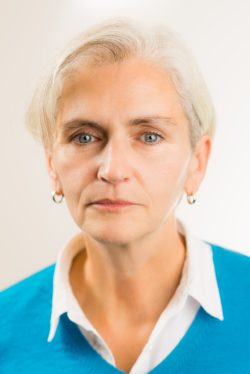 ESOL (English for Speakers of Other Languages) refers to the teaching and learning of English for adult migrants in the UK. Teachers of ESOL work with students who use many languages, dialects and registers in their lives outside the classroom – but their experience of multilingual communities and their knowledge about languages and language use is not often made full use of in ESOL teaching. Dr Melanie Cooke, King’s College, London, will run a hands-on and participatory workshop suitable for teachers with varying levels of experience. The workshop will share results of an 8-week project, Our Languages, in collaboration with King’s College researchers, teachers and the popular education charity, English for Action. Participants in the workshop will experience some of the activities which they will be able to use with their students in diverse language learning settings.
ESOL (English for Speakers of Other Languages) refers to the teaching and learning of English for adult migrants in the UK. Teachers of ESOL work with students who use many languages, dialects and registers in their lives outside the classroom – but their experience of multilingual communities and their knowledge about languages and language use is not often made full use of in ESOL teaching. Dr Melanie Cooke, King’s College, London, will run a hands-on and participatory workshop suitable for teachers with varying levels of experience. The workshop will share results of an 8-week project, Our Languages, in collaboration with King’s College researchers, teachers and the popular education charity, English for Action. Participants in the workshop will experience some of the activities which they will be able to use with their students in diverse language learning settings.
Event co-chairs: James Simpson & Loreto Aliaga Salas & Laura Grassick
